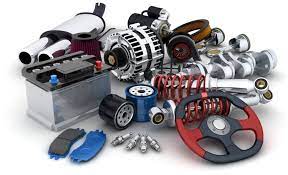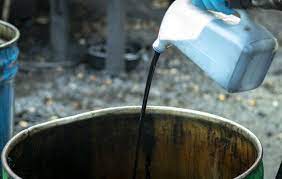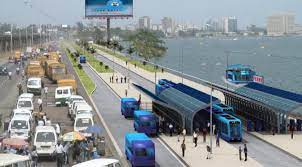
Are you interested in starting a car dealership business in Nigeria? If so, this blog post is for you! Starting a car dealership business in Nigeria is a great way to make money and provide a valuable service to the public.
In this post, we'll cover all the steps you need to take to get your business up and running, from securing the proper licenses and permits to choosing the right location and stocking your inventory.
We'll also discuss how to price your cars competitively and the marketing strategies you can use to attract customers.
Understanding the Nigerian Car Market
Before venturing into the car dealership business in Nigeria, it is crucial to have a deep understanding of the Nigerian car market. Nigeria is a country with a large population and a growing middle class, making it a promising market for the automotive industry. However, it is important to note that the car market in Nigeria is unique and presents its own challenges.
One key factor to consider is the preference for used cars in Nigeria. Due to the high cost of new vehicles and import duties, many Nigerians opt for used cars. This means that as a car dealership, it is important to have a wide range of used cars available to cater to this market demand.
Additionally, it is essential to be aware of the popular car brands and models in Nigeria. Certain brands such as Toyota, Honda, and Mercedes-Benz have a strong presence and are highly sought after by Nigerian consumers. Understanding the preferences of your target market will enable you to make informed decisions regarding the types of vehicles to stock in your dealership.
Furthermore, it is crucial to consider the economic factors that affect the car market in Nigeria. Fluctuations in the exchange rate, inflation rates, and government policies on importation and taxes can significantly impact the cost of vehicles and the purchasing power of consumers.
By thoroughly researching and understanding the Nigerian car market, you can position your car dealership business for success. This knowledge will allow you to make informed decisions regarding vehicle sourcing, pricing, and marketing strategies that align with the needs and preferences of Nigerian consumers.
Legal Requirements and Registrations
Starting any business in Nigeria requires compliance with various legal requirements and registrations. In the car dealership business, there are several licenses and permits that you need to obtain before commencing operations.
Firstly, you need to register your business with the Corporate Affairs Commission (CAC) and obtain a business name. Secondly, you need to obtain a Tax Identification Number (TIN) from the Federal Inland Revenue Service (FIRS).
Other legal requirements and registrations include obtaining a dealer's license from the Nigerian Customs Service (NCS) if you plan to import cars, and obtaining clearance from the National Automotive Design and Development Council (NADDC). It is also necessary to register your business with the Nigerian Association of Motor Dealers (NAMD) to gain recognition as a reputable dealer in the industry.
Compliance with these legal requirements is not only necessary for smooth operations, but it also helps build trust with customers and ensures that your business is not subject to legal consequences. It is essential to research the requirements thoroughly and seek the assistance of legal experts to ensure that all necessary permits and licenses are obtained.
Finding a Location and Setting Up Your Showroom
When starting a car dealership business in Nigeria, finding the right location for your showroom is crucial. You want to ensure that your showroom is in an accessible location with high foot and vehicular traffic. A location with easy access to major highways or busy roads is ideal.
Once you have found the right location, the next step is setting up your showroom. A well-designed and organized showroom is key to attracting and retaining customers. It is important to ensure that your showroom is spacious, well-lit and has ample parking space. You also need to ensure that your showroom is equipped with the necessary furniture and fittings such as display racks, desks, chairs and air conditioning units.
In addition, you should also invest in technology that will help to enhance the customer experience such as high-speed internet, televisions, sound systems, and other audio-visual aids.
Remember that your showroom is your business's physical representation and the first impression that your customers have of your brand. So, it's important to make it look good, professional and inviting to customers.
Sourcing for Vehicles - Importation or Local Purchase?
One of the key decisions you'll need to make as a car dealership owner is whether to source your vehicles through importation or local purchase. There are advantages and disadvantages to both options.
Importation allows you to access a wider range of vehicles, including those that may not be available locally. You can also benefit from lower prices by importing directly from manufacturers or dealers in other countries. However, this comes with its own challenges, such as navigating customs regulations and tariffs, and dealing with potential delays and additional costs associated with transportation and logistics.
On the other hand, purchasing locally can provide you with more convenience and faster access to inventory. You may also be able to build stronger relationships with local suppliers and leverage their expertise in the market. However, the selection of vehicles may be more limited and prices may be higher due to various factors such as taxes, tariffs and fees.
Ultimately, the decision should be based on your business goals, market demand and budget. It may also be beneficial to consider a hybrid approach, where you import some vehicles while purchasing others locally to ensure a well-rounded inventory.
Building a Reliable Supply Chain and Partnerships
A reliable supply chain is crucial for a car dealership business, as it ensures a steady flow of vehicles for sale and minimizes the risk of stock shortages. To build a dependable supply chain, you need to establish relationships with reliable sources, such as vehicle manufacturers, auction houses, and other dealers.
You may also need to diversify your sources to minimize risks associated with relying on a single supplier. Building partnerships with suppliers can lead to better pricing and increased discounts, thereby reducing your cost of sales and increasing your profit margins.
In addition to suppliers, building partnerships with financing institutions and insurance companies can provide additional revenue streams and value-added services to your customers.
You can also collaborate with other businesses such as auto repair shops, car rental services, and detailing services to create cross-promotion opportunities and a comprehensive solution for your customers.
Investing time and resources in building a reliable supply chain and partnerships is essential for the success of your car dealership business, and it requires constant monitoring and evaluation to ensure that it meets your business needs.
Sales and Marketing Strategies
Once you have set up your car dealership business in Nigeria, the next step is to focus on sales and marketing strategies to attract customers and generate revenue.
Firstly, it is essential to have a strong online presence. In today's digital age, potential customers are likely to start their car-buying journey online. Create a user-friendly website with detailed information about the vehicles you offer, including high-quality photos and descriptions. Utilize search engine optimization techniques to ensure your website appears in relevant search results.
In addition to your website, consider using social media platforms to engage with your target audience. Post regularly, share useful information about cars, and respond promptly to inquiries. Social media advertising can also be an effective way to reach a wider audience.
Networking is crucial in the car dealership business. Attend industry events and build relationships with other professionals, such as mechanics, insurance agents, and finance experts. They can refer potential customers to your dealership.
Offer incentives and promotions to attract customers. Consider offering discounts, freebies, or exclusive financing options. Creating a loyalty program can also encourage repeat customers.
Finally, monitor and analyze your marketing efforts. Track the effectiveness of different strategies and make adjustments as needed. Customer feedback is invaluable, so actively seek reviews and testimonials.
By implementing these sales and marketing strategies, you can increase brand awareness, attract more customers, and ultimately grow your car dealership business in Nigeria.
Managing Finances and Cash Flow
Managing finances and cash flow is an essential aspect of running a successful car dealership business in Nigeria. It is crucial to have a solid understanding of the financial side of the business to ensure profitability and sustainability.
Firstly, it is important to create a comprehensive budget that includes all the necessary expenses such as rent, utilities, salaries, advertising, and inventory. This will help in managing costs and forecasting cash flow.
One key aspect of managing finances is keeping track of inventory and understanding the turnover rate. It is important to maintain an optimal inventory level to avoid tying up excessive capital in unsold vehicles. Regular inventory audits and analysis will help in identifying slow-moving or obsolete stock and taking necessary action to minimize losses.
Cash flow management is vital to ensure smooth operations. This involves monitoring incoming and outgoing cash, managing receivables and payables, and effectively managing credit terms with suppliers and customers. Implementing efficient billing and collection systems will help in maintaining a healthy cash flow.
It is also important to establish relationships with financial institutions that offer favorable loan terms and credit facilities. This will help in financing inventory purchases and managing any unforeseen expenses.
Regular financial reviews and analysis should be conducted to assess the financial health of the business and make necessary adjustments. This includes analyzing profitability, return on investment, and overall financial performance.
By effectively managing finances and cash flow, a car dealership business in Nigeria can optimize profitability, minimize risks, and ensure long-term success in the competitive market.
Providing After-Sales Services and Maintenance Support
One crucial aspect of running a successful car dealership business in Nigeria is providing excellent after-sales services and maintenance support to your customers. This not only helps in building customer loyalty but also adds value to the overall customer experience.
To start with, it is important to have a dedicated team of skilled technicians who can handle repairs, servicing, and maintenance of the vehicles you sell. This team should be well-trained and up-to-date with the latest technologies and industry standards.
Additionally, it is essential to have a well-equipped workshop with the necessary tools and equipment to carry out repairs and maintenance tasks efficiently. Regular maintenance checks, oil changes, tire rotations, and other routine services should be offered to your customers.
Moreover, providing timely and reliable support in case of any issues or breakdowns is crucial. This can be done by offering a comprehensive warranty on the vehicles you sell and ensuring prompt response and assistance in case of any customer concerns or emergencies.
Furthermore, establishing partnerships with reputable and authorized spare parts suppliers is important. This ensures that genuine and high-quality parts are available for repairs and replacements, thus maintaining the reliability and longevity of the vehicles.
Overall, investing in after-sales services and maintenance support not only ensures customer satisfaction but also helps in building a strong reputation for your car dealership business in Nigeria.
Recruiting and Managing a Team
Once your car dealership business is up and running, it's crucial to have a strong team in place to ensure its success. Recruiting the right people with the necessary skills and experience will help you provide excellent customer service and boost your sales.
To recruit the best candidates, start by clearly defining the roles and responsibilities of each position within your dealership. Create job descriptions and qualifications that align with your business objectives and values. You can advertise the job openings on various online platforms and social media channels, as well as reach out to local trade schools or automotive training centers to find potential candidates.
During the hiring process, conduct thorough interviews and background checks to assess the candidates' qualifications and determine if they are a good fit for your dealership. Look for individuals who are passionate about cars, have excellent communication and customer service skills, and are motivated to meet sales targets.
Once you have assembled your team, it's essential to provide proper training and support to ensure their success. Offer ongoing training programs to enhance their product knowledge, sales techniques, and customer service skills. Encourage teamwork, motivation, and healthy competition within the dealership to foster a positive work environment.
In terms of managing your team, effective communication is key. Conduct regular meetings to discuss goals, provide feedback, and address any concerns or issues. Set performance targets and reward employees for their achievements. Provide opportunities for career growth and advancement to retain your top talent.
By recruiting and managing a dedicated and skilled team, you will establish a strong foundation for your car dealership business and ensure its long-term success in the Nigerian market.























